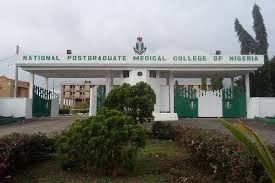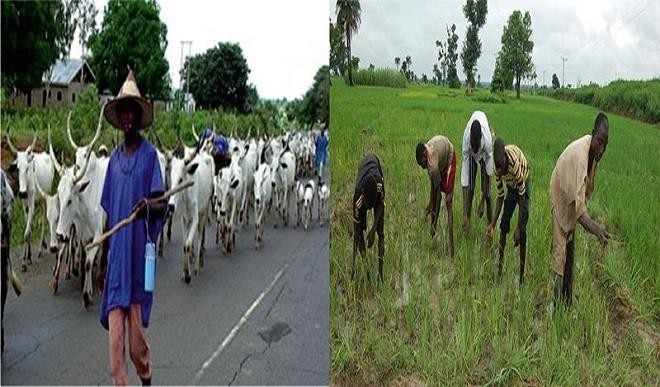
Nigerian medical specialists have sounded a strong warning over the growing exodus of doctors and internal migration of health professionals, saying the trend poses a grave threat to postgraduate medical education, research, and healthcare delivery across the country.
The alarm was raised at the 19th Annual Scientific Conference and All Fellows’ Congress (ASCAF Caliphate 2025), organised by the Postgraduate Medical College Fellows Association (PMCFA) in collaboration with the National Postgraduate Medical College of Nigeria (NPMCN). The week-long event, held from August 3rd to 8th at the International Conference Centre in Sokoto, drew participants from across Nigeria and the diaspora, alongside top government officials, academics, and traditional rulers.
With the theme “Leveraging Technology, Innovation, and Diversification to Revolutionise Postgraduate Medical Education in Nigeria,” the congress examined pressing issues affecting the medical profession, from the integration of artificial intelligence into medical training to the mass migration of doctors.
In a strongly worded communiqué issued at the close of the conference, the Fellows observed that “there is significant migration of doctors, young and old, out of the country that is negatively impacting medical education, research, and service delivery.” The statement also noted that within Nigeria, there is a steady drift of health workers to urban centres, leaving rural communities underserved.
The communiqué criticised the lack of visible action on the National Health Workforce Migration Policy launched in 2024, warning that policies alone cannot stop brain drain without real changes. “There is no commensurate significant stride to address the drivers of health workforce migration, such as low salaries and poor working conditions,” it stated.
College President, Dr. Peter Ndidi Ebeigbe, stressed that unless deliberate efforts are made to retain talent, Nigeria’s health sector will continue to weaken. “We must create conditions that motivate our workforce to stay, and where possible, encourage those in the diaspora to return and contribute at home,” he said.
The Fellows also called for urgent reforms in medical education to keep pace with global trends. According to the communiqué, “globally, institutions are integrating AI into curricula to improve competency-based education and lifelong learning. Nigeria cannot afford to lag.”
They recommended the development of a national roadmap for the phased introduction of AI into medical curricula, training workshops to build capacity, and the creation of oversight committees to address ethical and policy issues around AI.
The communiqué emphasised that digital health technologies, if properly adopted, could transform patient care, policymaking, and clinical practice.
Participants further highlighted healthcare entrepreneurship as a neglected area in Nigeria’s medical education.
“Healthcare entrepreneurship is an overlooked or inadequately addressed component within medical education,” the Fellows observed, urging medical schools to expose practitioners to business models that can improve health outcomes.
Another recurring concern was the financial vulnerability of medical practitioners.
The congress encouraged doctors to pursue financial literacy, savings, insurance, and diverse investments to cushion the impact of low remuneration. “A clinician distracted by personal financial stress, partly from inadequate compensation, is dissatisfied and half-as-present at the bedside with a strong drive to migrate,” the communiqué warned.
Government at all levels was urged to harmonise pay structures, tackle corruption in the system, and provide modern facilities and technology to improve working conditions. “There is a need to address the drivers of health workforce migration, such as mainstreaming an attractive welfare and remuneration package supported with advanced facilities and technology to attract and retain workforce in the country and in rural areas where skilled personnel make the most impact on citizens’ morbidity and mortality,” the Fellows declared.
The conference also featured the annual Professor Theophilus Ogunlesi Lecture, delivered by Prof. Basden J.C. Onwubere, who spoke on combating hypertension, which he described as a “silent killer” projected to affect 1.5 billion people globally by 2025. Distinguished fellows, including Emeritus Prof. S.C. Ohaegbulam and Prof. Angela Okolo, were honoured for their contributions to medical education.
READ ALSO: Doctors Warn of Brain Drain, Call for Technology, Better Welfare at Sokoto Medical Congress
NUJ FCT Chair Calls for Stronger Media–Parliament Synergy to Bolster Oversight of Public Debt
The Sokoto gathering was attended by eminent personalities, including His Eminence, Sultan Muhammad Sa’ad Abubakar III; representatives of the Governors of Sokoto and Kebbi States; the Coordinating Minister of Health, Prof. Muhammad Ali Pate; and the Minister of Education, Dr. Morufu Tunji Alausa.
In their closing remarks, the organisers expressed gratitude to President Bola Ahmed Tinubu, state governors, royal fathers, and academic leaders for their support, while reaffirming their commitment to strengthening postgraduate medical education in Nigeria.





